第71章 CHAPTER THE SEVENTEENTH NEAR IT.(1)
THE Library at Windygates was the largest and the handsomest room in the house. The two grand divisions under which Literature is usually arranged in these days occupied the customary places in it. On the shelves which ran round the walls were the books which humanity in general respects--and does not read. On the tables distributed over the floor were the books which humanity in general reads--and does not respect. In the first class, the works of the wise ancients; and the Histories, Biographies, and Essays of writers of more modern times--otherwise the Solid Literature, which is universally respected, and occasionally read. In the second class, the Novels of our own day--otherwise the Light Literature, which is universally read, and occasionally respected. At Windygates, as elsewhere, we believed History to be high literature, because it assumed to be true to Authorities (of which we knew little)--and Fiction to be low literature, because it attempted to be true to Nature (of which we knew less). At Windygates as elsewhere, we were always more or less satisfied with ourselves, if we were publicly discovered consulting our History--and more or less ashamed of ourselves, if we were publicly discovered devouring our Fiction. An architectural peculiarity in the original arrangement of the library favored the development of this common and curious form of human stupidity. While a row of luxurious arm-chairs, in the main thoroughfare of the room, invited the reader of solid lit erature to reveal himself in the act of cultivating a virtue, a row of snug little curtained recesses, opening at intervals out of one of the walls, enabled the reader of light literature to conceal himself in the act of indulging a vice. For the rest, all the minor accessories of this spacious and tranquil place were as plentiful and as well chosen as the heart could desire. And solid literature and light literature, and great writers and small, were all bounteously illuminated alike by a fine broad flow of the light of heaven, pouring into the room through windows that opened to the floor.
It was the fourth day from the day of Lady Lundie's garden-party, and it wanted an hour or more of the time at which the luncheon-bell usually rang.
The guests at Windygates were most of them in the garden, enjoying the morning sunshine, after a prevalent mist and rain for some days past. Two gentlemen (exceptions to the general rule) were alone in the library. They were the two last gentlemen in the would who could possibly be supposed to have any legitimate motive for meeting each other in a place of literary seclusion. One was Arnold Brinkworth, and the other was Geoffrey Delamayn.
They had arrived together at Windygates that morning. Geoffrey had traveled from London with his brother by the train of the previous night. Arnold, delayed in getting away at his own time, from his own property, by ceremonies incidental to his position which were not to be abridged without giving offense to many worthy people--had caught the passing train early that morning at the station nearest to him, and had returned to Lady Lundie's, as he had left Lady Lundie's, in company with his friend.
After a short preliminary interview with Blanche, Arnold had rejoined Geoffrey in the safe retirement of the library, to say what was still left to be said between them on the subject of Anne. Having completed his report of events at Craig Fernie, he was now naturally waiting to hear what Geoffrey had to say on his side. To Arnold's astonishment, Geoffrey coolly turned away to leave the library without uttering a word.
Arnold stopped him without ceremony.
"Not quite so fast, Geoffrey," he said. "I have an interest in Miss Silvester's welfare as well as in yours. Now you are back again in Scotland, what are you going to do?"
If Geoffrey had told the truth, he must have stated his position much as follows:
He had necessarily decided on deserting Anne when he had decided on joining his brother on the journey back. But he had advanced no farther than this. How he was to abandon the woman who had trusted him, without seeing his own dastardly conduct dragged into the light of day, was more than he yet knew. A vague idea of at once pacifying and deluding Anne, by a marriage which should be no marriage at all, had crossed his mind on the journey. He had asked himself whether a trap of that sort might not be easily set in a country notorious for the looseness of its marriage laws--if a man only knew how? And he had thought it likely that his well-informed brother, who lived in Scotland, might be tricked into innocently telling him what he wanted to know. He had turned the conversation to the subject of Scotch marriages in general by way of trying the experiment. Julius had not studied the question; Julius knew nothing about it; and there the experiment had come to an end. As the necessary result of the check thus encountered, he was now in Scotland with absolutely nothing to trust to as a means of effecting his release but the chapter of accidents, aided by his own resolution to marry Mrs.
Glenarm. Such was his position, and such should have been the substance of his reply when he was confronted by Arnold's question, and plainly asked what he meant to do.
"The right thing," he answered, unblushingly. "And no mistake about it."